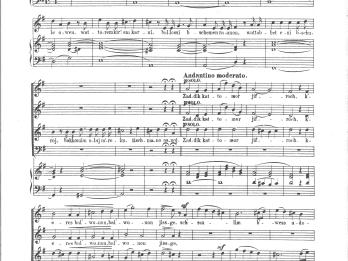Diálogo dos montes (The Controversy of the Mountains)
Reuel Jessurun
1624
How blessed and how happy must that man
A thousand times be called who acknowledges
One God alone, a single entity.
How happy and how blessed must he be
Who in God’s holy Law meditates
Both night and day.
How blessed those who sit
Within thy house, O Lord of Holiness,
Praising thy holy name continually.
Blessed many times and fortunate
The people are whom alone it’s given
To be called the people of the blessed Lord.
Blessed and holy must the people be
Whose God the Lord of Hosts by name is called.
Shalom alekhem, Nebo, Carmel, Hor.
Alekhem shalom, Zetim and Gerizim.
O may our stay in this Kahal Kadosh
Be for the good and peace of everyone.
This without doubt must be the sacred place
Chosen by mother Earth for us to meet,
The seven sons whom she would reconcile.
Many are here already; I’m not first.
Adonay imakhem, my brothers.
Yevarekhekha Adonay, Sinai divine.
There’s still one missing of the seven sons.
Yes, Mount Zion has not yet arrived.
May a redeemer come as soon to Zion
As Zion comes to us.
I must be late,
Since the six brothers are already here.
Zion, at last you’ve come, and your arrival
Makes between us all the perfect number.
O brothers dear, dearly beloved friends,
O what sweet discourse, what appealing words!
Truly this sacred place wherein we stand
The harmony and singing which is due
This harmony we cannot well enjoy
Neither as honorable nor true can we
Credits
Published in: The Posen Library of Jewish Culture and Civilization, vol. 5.



